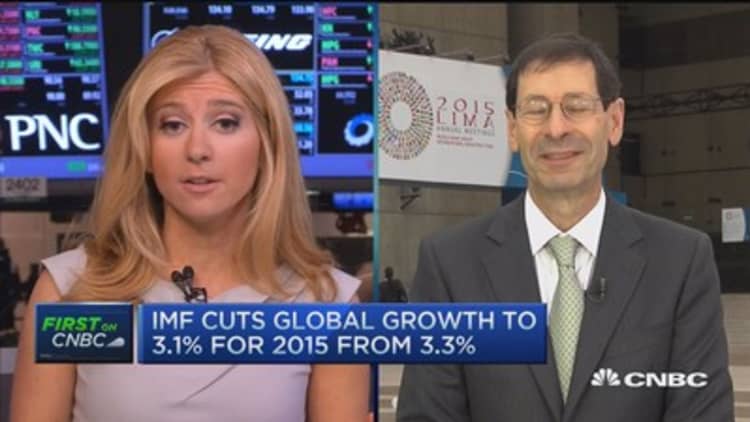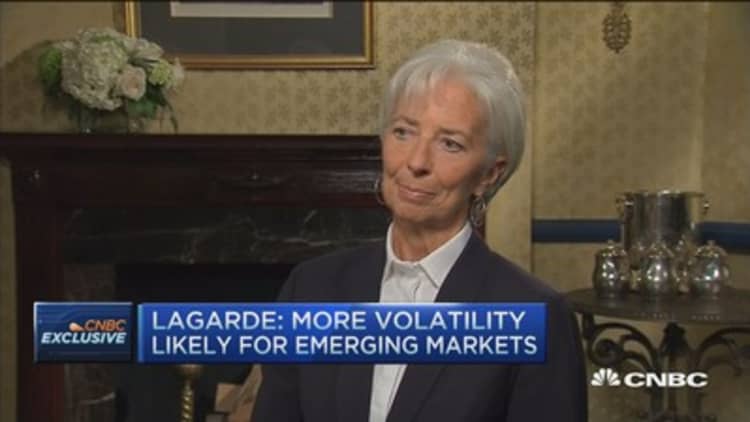


The newly appointed chief economist for the International Monetary Fund, Maurice Obstfeld, said on Tuesday that the current global economic environment can be hard to predict.
"We're in a very dynamic situation now where China's pattern of production and consumption is changing rapidly leading to slower growth," he said in an interview on CNBC's "Squawk Alley."
"Commodity prices are at the end of a supercycle, and the Fed is making a transition to monetary normalization whose timing is very uncertain, so in that environment it becomes hard to forecast so we're trying to be on the ball and constantly revising what we think."
Obstfeld was responding to criticism that the research team at the IMF was too optimistic and therefore had to cut its growth projections often. He said that the fund evaluates new economic data as it comes in and that "inevitably forecasts are going to be off" due to the changing nature of data.
Earlier in the day, the organization cut its expected global growth forecasts for 2015 once again and warned that downside risks to the global economy appear "more pronounced."
Global growth for 2015 is projected at 3.1 percent, down 0.2 percentage points from its July forecast for 3.3 percent growth, according to the IMF's latest World Economic Outlook (WEO) report. It cited weaker growth prospects for emerging economies, including China, and a decline in commodity prices as a reason for the revision.
In July, the head of the IMF, Christine Lagarde, appointed Obstfeld to his post as the top economist at the organization. He began working at the fund in September and was previously a professor of economics at the University of California, Berkeley,
—CNBC's Holly Ellyatt contributed to this report.



